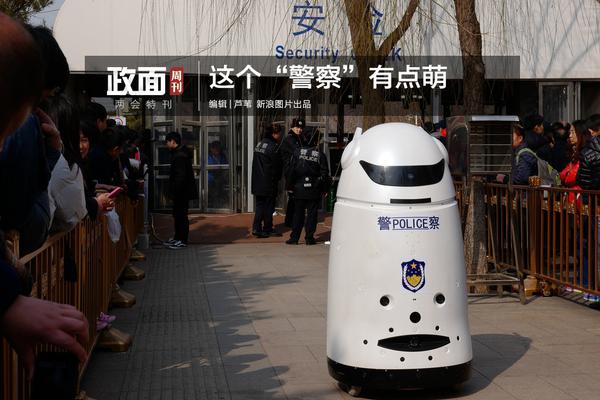
Short-term memory, long-term memory. Cognitive psychology regards memory as the process of coding, storing and extracting input information by the human brain. Memory is divided into three systems: instantaneous memory, short-term memory and long-term memory, which is based on the different ways of encoding, storing and extracting information, as well as the different length of information storage time.
What are the three memory systems: memory is also regarded as the process of the human brain encoding, storing and extracting input information, and according to the different ways of coding, storing and extracting information, as well as the different length of information storage time, memory is divided into instantaneous memory, short-term memory and long-term memory. A system.
What are the three memory systems? According to the different ways of encoding, storing and extracting information, and the different length of information storage time, memory is divided into three systems: instantaneous memory, short-term memory and long-term memory.
The three stages of memory are sensory memory, short-term memory and long-term memory. Sensory memory: Sensory memory refers to the information we receive through various sensory organs, such as vision, hearing, touch, taste and smell.
What are the three memory systems? According to the different ways of coding, storage and extraction of information, and the different length of information storage time, memory is divided into instantaneous memory, short-term memory and long-term memory. Remember the three systems.
The coding method of instantaneous memory, that is, the way instantaneous memory remembers information, is the image of external stimuli. Because the information of instantaneous memory is first registered in the sensory channel in the form of sensory images, instantaneous memory has a distinct image. The capacity of instantaneous memory is large, but the retention time is very short.
Perception is the cognitive process of giving meaning through information. ( 2) Working memory. It is the memory of processing and encoding information in the human brain within a minute. The holding time is about 5 seconds to 1 minute. Short-term memory also includes direct memory and working memory.

Weber's score), which is only applicable to medium-intensity stimuli, which is different from the Weber's score of sensory organs (2) Fechner's Law: 1860, using the differential threshold as the unit of sensation, a stimulus was measured. The difference threshold contained is believed to be the psychological intensity caused by this stimulus.
The concept of memory is the psychological process of accumulating, preserving and extracting individual experience in the mind.From storing into the brain to extracting and applying again, this complete process is collectively called memory.
Long-term memory refers to the memory maintained for more than a minute after external stimuli appear in a very short time. Features: The capacity of memory is unlimited, whether it is the type or quantity of information. Coding Semantic coding: Use words to process information and organize coding according to the meaning of the material.
Memory and memory process Definition: It is the reaction of past experience in the mind. Past experience refers to the perception of things, thinking about problems, the emotional experience caused by things, and the actions that have been carried out in the past. Function: It is the root of wisdom and the cornerstone of psychological development.
UEFA European championship-APP, download it now, new users will receive a novice gift pack.
Short-term memory, long-term memory. Cognitive psychology regards memory as the process of coding, storing and extracting input information by the human brain. Memory is divided into three systems: instantaneous memory, short-term memory and long-term memory, which is based on the different ways of encoding, storing and extracting information, as well as the different length of information storage time.
What are the three memory systems: memory is also regarded as the process of the human brain encoding, storing and extracting input information, and according to the different ways of coding, storing and extracting information, as well as the different length of information storage time, memory is divided into instantaneous memory, short-term memory and long-term memory. A system.
What are the three memory systems? According to the different ways of encoding, storing and extracting information, and the different length of information storage time, memory is divided into three systems: instantaneous memory, short-term memory and long-term memory.
The three stages of memory are sensory memory, short-term memory and long-term memory. Sensory memory: Sensory memory refers to the information we receive through various sensory organs, such as vision, hearing, touch, taste and smell.
What are the three memory systems? According to the different ways of coding, storage and extraction of information, and the different length of information storage time, memory is divided into instantaneous memory, short-term memory and long-term memory. Remember the three systems.
The coding method of instantaneous memory, that is, the way instantaneous memory remembers information, is the image of external stimuli. Because the information of instantaneous memory is first registered in the sensory channel in the form of sensory images, instantaneous memory has a distinct image. The capacity of instantaneous memory is large, but the retention time is very short.
Perception is the cognitive process of giving meaning through information. ( 2) Working memory. It is the memory of processing and encoding information in the human brain within a minute. The holding time is about 5 seconds to 1 minute. Short-term memory also includes direct memory and working memory.

Weber's score), which is only applicable to medium-intensity stimuli, which is different from the Weber's score of sensory organs (2) Fechner's Law: 1860, using the differential threshold as the unit of sensation, a stimulus was measured. The difference threshold contained is believed to be the psychological intensity caused by this stimulus.
The concept of memory is the psychological process of accumulating, preserving and extracting individual experience in the mind.From storing into the brain to extracting and applying again, this complete process is collectively called memory.
Long-term memory refers to the memory maintained for more than a minute after external stimuli appear in a very short time. Features: The capacity of memory is unlimited, whether it is the type or quantity of information. Coding Semantic coding: Use words to process information and organize coding according to the meaning of the material.
Memory and memory process Definition: It is the reaction of past experience in the mind. Past experience refers to the perception of things, thinking about problems, the emotional experience caused by things, and the actions that have been carried out in the past. Function: It is the root of wisdom and the cornerstone of psychological development.
100 free bonus casino no deposit GCash
author: 2025-01-05 14:41Hearthstone arena deck Builder
author: 2025-01-05 12:54 Free sports events uefa champions league app android
Free sports events uefa champions league app android
258.38MB
Check Casino Plus
Casino Plus
357.93MB
Check bingo plus update today Philippines
bingo plus update today Philippines
378.54MB
Check Hearthstone Wild Decks
Hearthstone Wild Decks
176.34MB
Check Casino free 100 no deposit
Casino free 100 no deposit
645.62MB
Check UEFA TV
UEFA TV
696.34MB
Check App to watch Champions League live free
App to watch Champions League live free
959.25MB
Check PAGCOR online casino free 100
PAGCOR online casino free 100
967.43MB
Check Casino Plus app
Casino Plus app
654.42MB
Check Casino Plus
Casino Plus
381.48MB
Check UEFA live free
UEFA live free
452.68MB
Check Bingo Plus
Bingo Plus
759.13MB
Check UEFA Champions League standings
UEFA Champions League standings
675.66MB
Check UEFA Champions League live streaming free
UEFA Champions League live streaming free
272.23MB
Check Hearthstone Arena Tier List
Hearthstone Arena Tier List
671.94MB
Check Casino Plus login register
Casino Plus login register
299.44MB
Check Hearthstone Arena Tier List
Hearthstone Arena Tier List
461.81MB
Check UEFA Champions League live streaming app
UEFA Champions League live streaming app
148.97MB
Check Europa League app
Europa League app
698.29MB
Check Hearthstone Arena win rate
Hearthstone Arena win rate
412.61MB
Check Hearthstone Arena class tier list 2024
Hearthstone Arena class tier list 2024
459.58MB
Check UEFA Champions League live
UEFA Champions League live
554.13MB
Check Champions League
Champions League
131.69MB
Check UEFA live free
UEFA live free
231.81MB
Check bingo plus update today Philippines
bingo plus update today Philippines
848.43MB
Check Europa League app
Europa League app
589.68MB
Check TNT Sports
TNT Sports
264.81MB
Check UEFA TV
UEFA TV
942.35MB
Check Hearthstone Arena Tier List
Hearthstone Arena Tier List
473.23MB
Check UEFA TV
UEFA TV
299.72MB
Check Casino Plus GCash login
Casino Plus GCash login
634.26MB
Check LR stock price Philippines
LR stock price Philippines
993.72MB
Check 100 free bonus casino no deposit GCash
100 free bonus casino no deposit GCash
561.14MB
Check UEFA Champions League standings
UEFA Champions League standings
953.48MB
Check Hearthstone Arena win rate
Hearthstone Arena win rate
798.58MB
Check Walletinvestor digi plus
Walletinvestor digi plus
824.51MB
Check
Scan to install
UEFA European championship to discover more
Netizen comments More
1135 DigiPlus fair value
2025-01-05 13:51 recommend
599 Hearthstone deck
2025-01-05 13:47 recommend
106 Casino Plus login register
2025-01-05 13:24 recommend
2417 UEFA EURO
2025-01-05 12:55 recommend
1535 Bingo Plus stock
2025-01-05 12:44 recommend